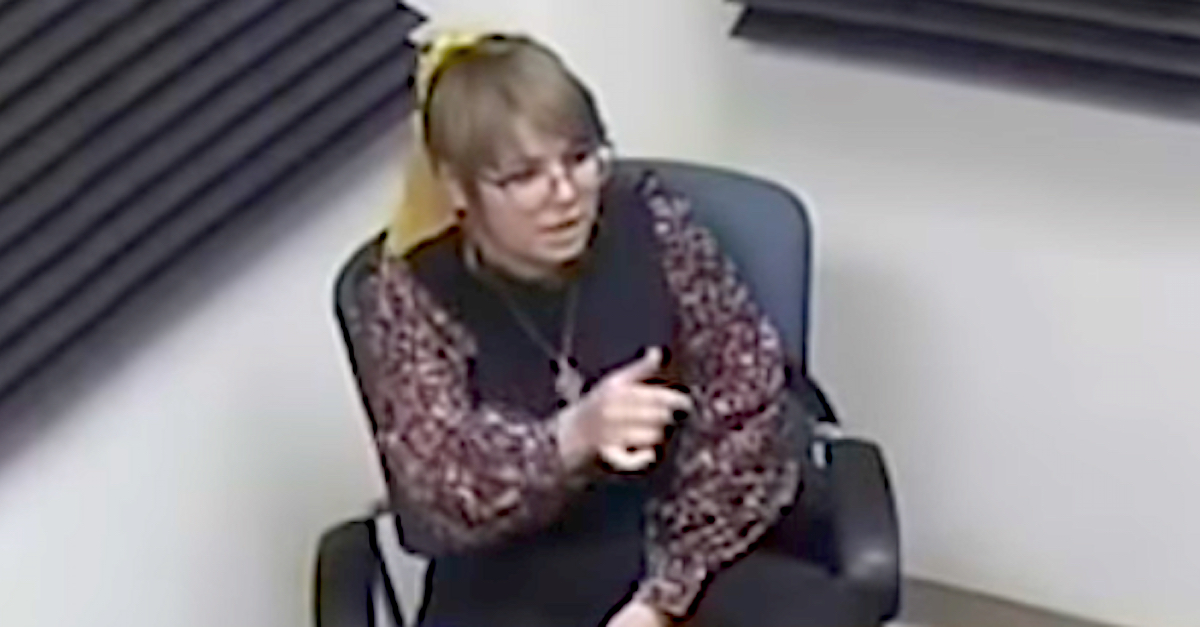
Hannah Gutierrez-Reed appears in a screengrab from a videotaped police interview.
The armorer hired to provide weapons services for the since-rubbished Western film Rust is slamming the law enforcement investigation into the death of cinematographer Halyna Hutchins.
“The primary question in this case from the beginning has been where did the live rounds that ended upon the Rust set come from?” asked armorer Hannah Gutierrez-Reed in a statement provided to Law&Crime through her attorneys on Thursday. “As can be seen from the attached emails, the Sheriff’s office made a conscious decision not to pursue this question at all by refusing to ask the FBI to test any of the rounds for fingerprints or DNA.”
The emails noted that two particular individuals “supplied rounds to the set” without apparently having ever stepped foot on the Bonanza Creek Ranch where filming occurred. The messages, from Gutierrez-Reed attorney Jason Bowles to Santa Fe County Sheriff’s Office Detective Alexandria J. Hancock, suggest that those two individuals could have left DNA on the bullets recovered from the set.
“Alex – I have found a few articles on [DNA] testing of rounds, including spent rounds,” Bowles wrote. “Do you know why the [FBI] didn’t do any [DNA] testing on the rounds?”
“We discussed as a team what would make most sense for the investigation,” Hancock replied. “Given the fact the items were from movie sets, which had been handled over and over and over. It didn’t make sense. I remember having that discussion with you a couple times as well.”
Bowles replied:
Thanks for your email. I respectfully disagree with that idea. I remember that you told me awhile back they weren’t tested for [DNA] or prints but I never agreed that was a good idea. I think [DNA] is still possible to be obtained from them and I also believe Seth’s prints and [DNA] should have been submitted. I just think it makes sense to rule everything in or out so those issues are off the table if there is ever a trial. If they aren’t ruled out, they are always going to be question marks.
The “Seth” referenced in the message appears to be Seth Kenney, a prop supplier who Gutierrez-Reed is suing civilly.
Hancock responded:
Thank you for your input, however we are done with testing at this time. We already know Hannah loaded the weapon that was used during the incident, that was her statement. We also know everything in question was handled by multiple people after the incident.
Seth was also not on the set of Rust. He and Billy Ray identified what they provided.
Billy Ray is identified in law enforcement documents as another armorer who provided “extra rounds” for the production.
Bowles then emailed this retort back to Hancock:
Alex – I know you understand that even though neither Seth nor Billy Ray were in the set, we know they supplied rounds to the set. So it’s possible their [DNA] could be on the rounds without stepping on set, or not, either way you rule this out or in. I’ve never heard of an agency declining to pursue [DNA] evidence on the possible murder instrument or weapon. I urge you to reconsider this. This will be a very significant issue at trial, if we get there.
Gutierrez-Reed and her attorney released the statement and the emails in response to a cache of FBI tests released by authorities in New Mexico late last week.
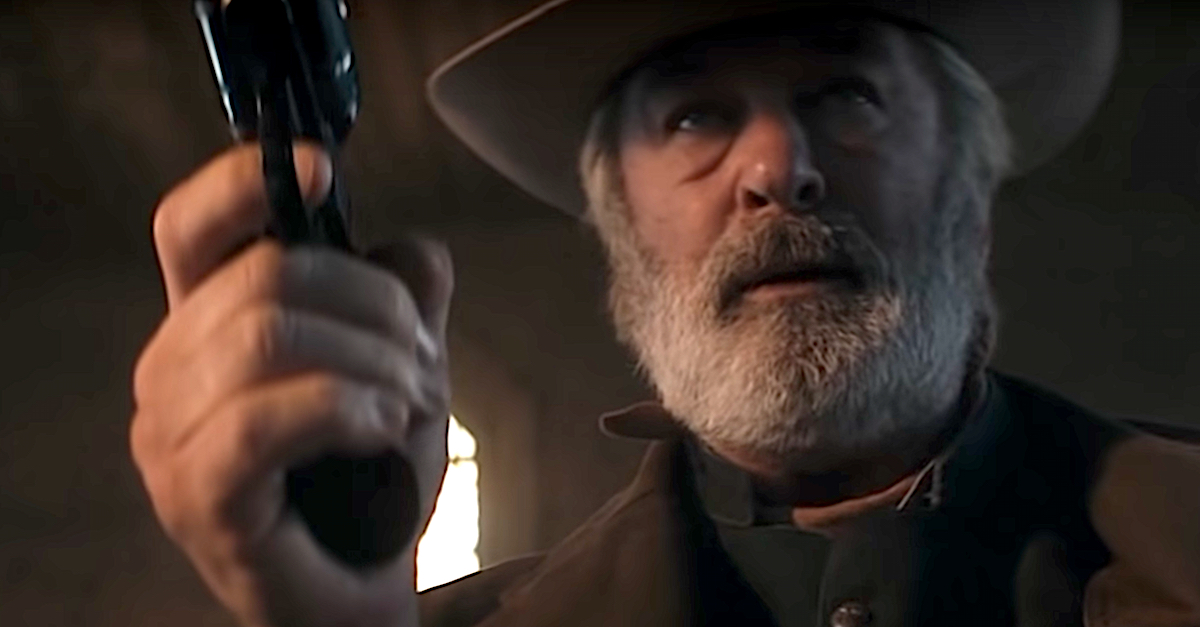
Alec Baldwin appears in a rehearsal recording from the Western film “Rust.” (Image via YouTube screengrab.)
Those documents, which were obtained by Law&Crime, suggest that the most plausible way the gun held by Baldwin could have been fired was for Baldwin to have pulled the trigger. The report also said the gun could have been fired if the hammer was independently struck by some other means.
The FBI documents received by Law&Crime say nothing of the weight necessary to set off the gun’s trigger mechanism. It is unclear whether the device contained a hair trigger or whether the weapon required significant force to effectuate a “pull” of the trigger.
Baldwin said on a podcast with Chris Cuomo earlier this week that he was “fanning” the gun when it went off. He said it was the armorer’s job to ensure no live rounds were on set, and he reiterated that he had been told the gun was “cold.”
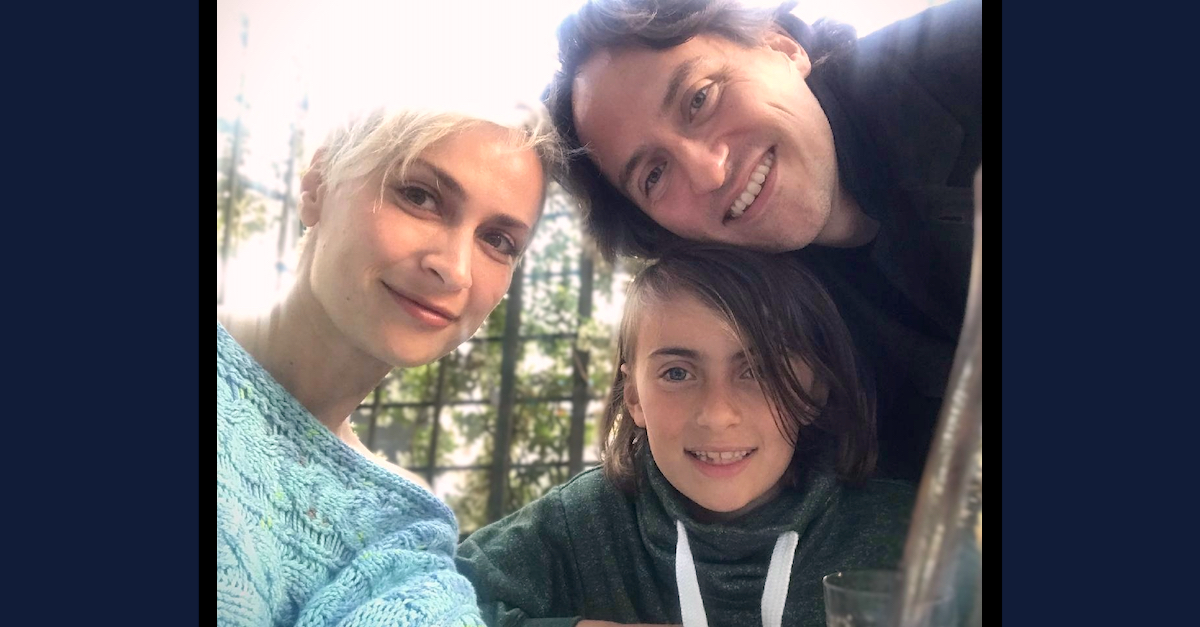
Halyna Hutchins and her family appear in a photo released by her family’s attorneys.
During a law enforcement interview, the authorities told Gutierrez-Reed that the name of a company that doesn’t manufacture live ammunition appeared on some of cartridges law enforcement determined to contain “live” rounds.
“What the fuck,” Gutierrez-Reed said, according to law enforcement video of the conversation. “That’s insane.”
The conversation questioned whether sabotage was afoot.
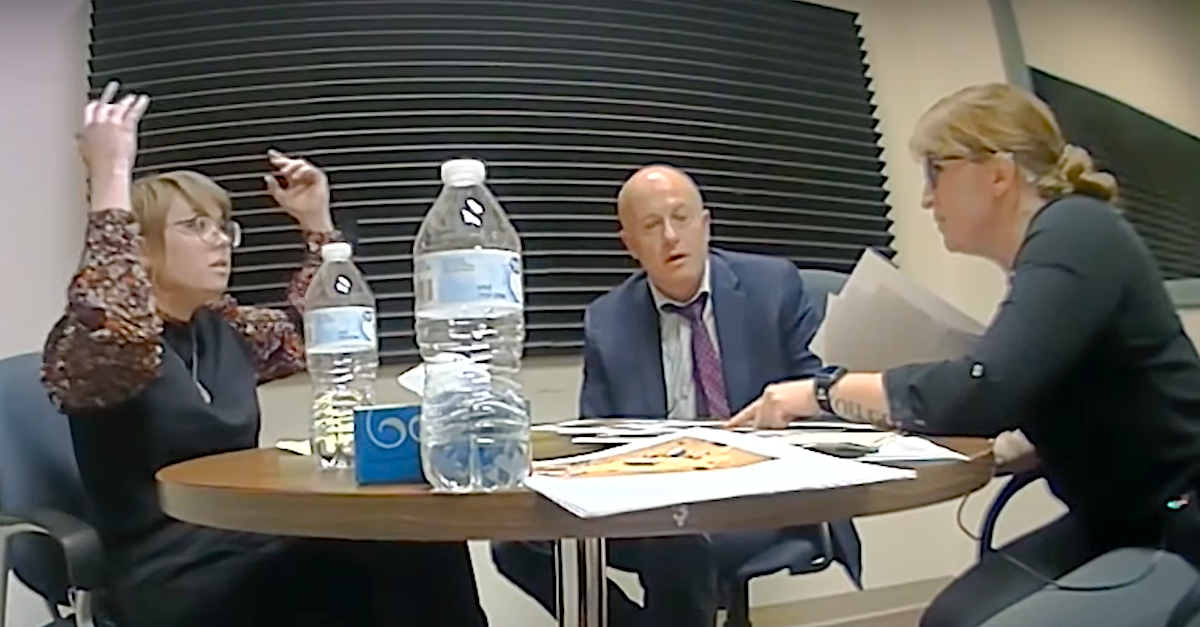
Hannah Gutierrez-Reed (left) reacts to being told that cartridges used on the set of the film “Rust” contained live rounds despite being marked with the name of a company that only made blanks or dummies.
Gutierrez-Reed proclaimed in a Jan. 12 civil lawsuit that Kenney, the one ammunition supplier with whom she worked, provided “reloaded rounds” of ammunition to the production. Those rounds, her lawsuit suggested, looked like an inert round, such as a blank or a dummy, but contained an actual projectile.
Blanks contain a propellant but not a projectile; they emit sound and smoke only. Dummies look mostly like real bullets and are often used on films for visual purposes; however, they contain no propellant and cannot be fired.
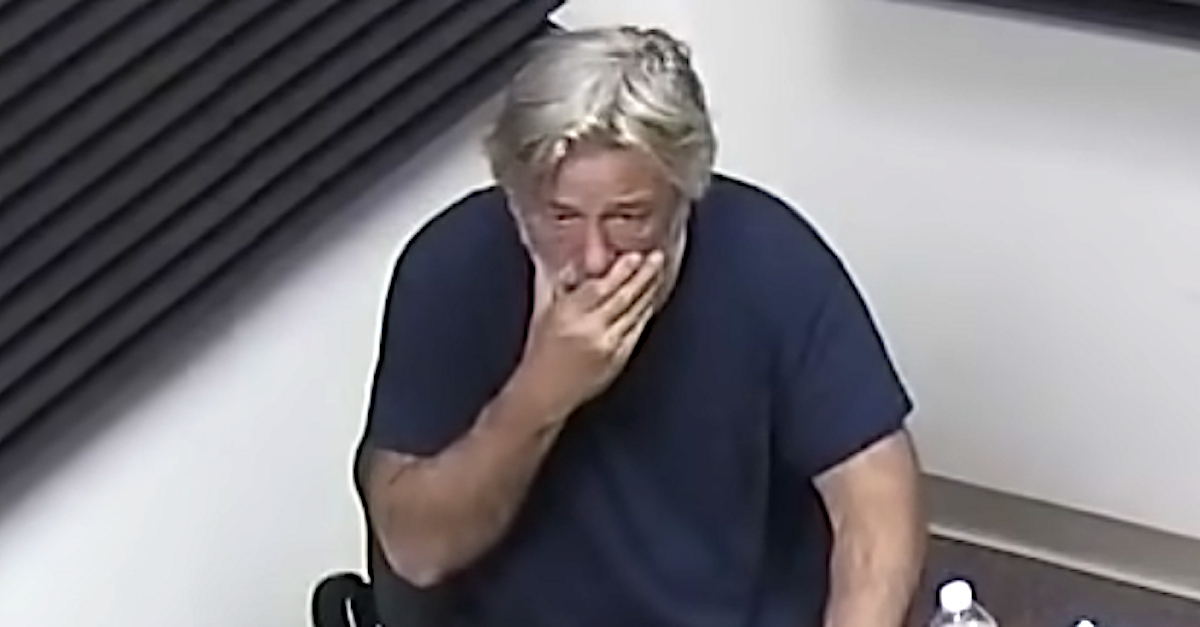
In a screengrab from a police interview video, Alec Baldwin reacts to news that “Rust” cinematographer Halyna Hutchins was dead.
Gutierrez-Reed is not the only person criticizing the status of the law enforcement investigation. Luke Nikas, an attorney for Baldwin, released the following statement to Law&Crime earlier this week about the FBI’s tests on the weapon in question:
The critical report is the one from the medical examiner, who concluded that this was a tragic accident. This is the third time the New Mexico authorities have found that Alec Baldwin had no authority or knowledge of the allegedly unsafe conditions on the set, that he was told by the person in charge of safety on the set that the gun was “cold,” and believed the gun was safe.
The FBI report is being misconstrued. The gun fired in testing only one time—without having to pull the trigger—when the hammer was pulled back and the gun broke in two different places. The FBI was unable to fire the gun in any prior test, even when pulling the trigger, because it was in such poor condition.
The top prosecutor in Santa Fe County, New Mexico, said recently that she was waiting additional forensics reports, such as those on Alec Baldwin’s phone, before determining whether or not a criminal case is warranted.
The emails released by Gutierrez-Reed’s attorney are below:
Video of Baldwin’s police interview is embedded below: